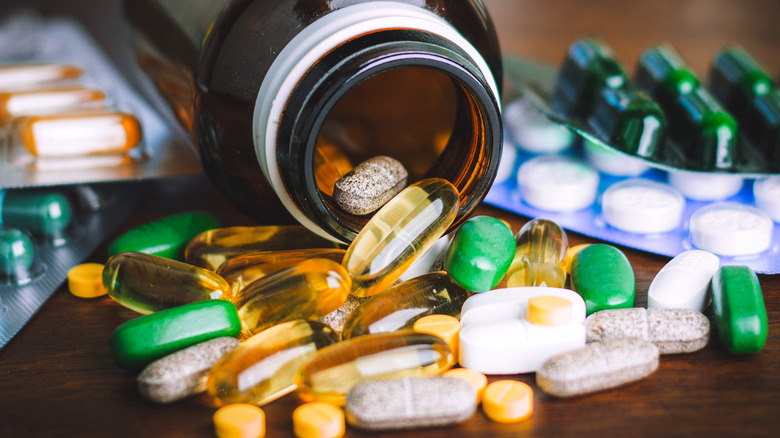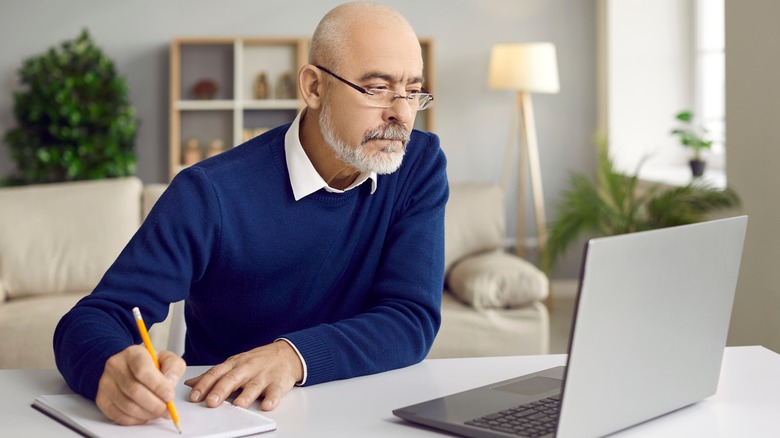How To Spot A Fake Online Pharmacy, According To The FDA
There is simply no good reason to buy fake medicines, but if you buy prescriptions online, there's a chance you're not getting what you hope and pay for.
According to a late 2020 poll, over 35% of Americans have purchased their medication from an online pharmacy, per The Alliance For Safe Online Pharmacies (ASOP). Those in the poll were asked for their reasoning behind ordering online, and they stated convenience and cost as the two most prominent. The poll also determined that those most likely to buy online were well-educated and financially stable.
The reality is that this trend of buying prescriptions from online pharmacies will continue because they can offer a convenient, often cheaper alternative accessible from the privacy of your own home (via WebMD). The problem is that along with legitimate online pharmacy growth, there will likely be an increase in fake or malicious online selling in response. Fake online pharmacies will do what they can to make themselves look and sound like other licensed pharmacies.
The truth, though, is they are doing what they can to make money with false claims of products, and the consumer may suffer severe consequences. "Just because an online pharmacy website appears in your search results or social feed does not mean that the site is legitimate or safe. In fact, the vast majority of online drug sellers operate illegally," says John Hertig, associate Professor, Butler College of Pharmacy and Health Sciences and ASOP Global Board President regarding the issue (via ASOP).
Online pharmacies should be licensed
According to the U.S. Food & Drug Administration (FDA), one of the best things to do before purchasing from an online pharmacy is to verify that they are licensed. They provide resources on their site to confirm the details of U.S. state licensure, practitioner profiles, and more for free. If the site is licensed, the next step is to confirm that they require an official prescription before selling to consumers. While it may seem like a plus that you don't have to make and pay for an appointment with your doctor before ordering from some of these fake online sites, it can lead to a bigger bill and worsen health problems, depending on what the product you receive actually contains.
Other signs of a genuine pharmacy are staffed licensed pharmacists you can connect with for questions or concerns, and they have an actual address and phone number located within the U.S. (per the FDA). Furthermore, watch for prices that seem too good to be true, and if you receive your product, inspect the package first, reports WebMD. Damaged packaging, anything written in a foreign language, or expired medications are all signs of concern. Lastly, examine the actual medication and be sure it looks like something you've taken from a licensed pharmacy before consuming. The consequences of purchasing from a fake site include having your financial or personal information stolen or receiving medically ineffective or harmful products.


